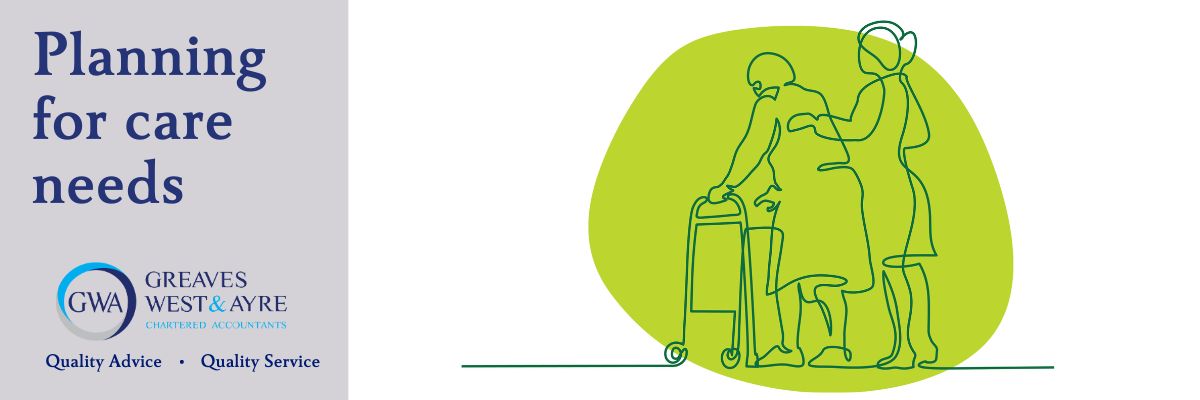Planning for care needs

As a society we are living longer. Our families and support networks are more widely dispersed. Navigating the world of care homes, Local Authorities and financial assessments is not only complex, but is becoming increasingly likely to be part of our future.
The cost of care is not insignificant- typically, ‘basic’ care (without specialist nursing or dementia care needs) will cost over £1,000 per week. Care in your own home, or domiciliary care, is similarly priced. This means we can expect to face care costs of over £50,000 per annum in later life, if we have care needs which cannot be met by family or friends.
For those who do not have the means to meet the cost of care, the Local Authority will provide financial assistance to ensure your needs are met. However in England* if you have sufficient income, or assets over £23,250 you will be expected to pay your way. Irrespective of the level of your assets, much of your income will be taken to pay towards your care bills.
If you own your own home, this may be included in the calculation of your assets and subsequently deemed part of the capital used to meet your care bills. Some exceptions apply to this rule, the most common being if a spouse or partner remains living in the house.
The Government’s Adult Social Care Charging Reform aims to place a ‘cap’ on the cost of care sounds, at first glance, like a ray of hope. To only pay £86,000 in one’s lifetime would, at the prices above, potentially save individuals from eyewatering lifetime care bills. However, this cap covers only the care element of one’s care home costs, which are assumed to be in the region of £538 per week. This is because the rate used to calculate the cap is linked to the Local Authority funded rates, not the rates paid by self-funding individuals. To reach the £86,000 care cap at a rate of £538 per week would take around 160 weeks; based on a self-funder’s care bill of £1,000 per week, the true cap for a self-funder is likely to be almost double the headline cap, at £160,000 or more
As financial advisers we provide support and guidance to those facing care costs. By removing unnecessary jargon, explaining how the care system operates and outlining practical solutions, we help our clients to make informed decisions. If you or a family member would benefit from further information in this area, please contact Corryn Wild. Corryn is one of the Directors at our sister organisation Three Counties Ltd. She specialises in later life advice and is a Society of Later Life (SOLLA) accredited adviser.
Disclaimer – This is a potentially complex area, and you should consult a suitably qualified adviser. Government support and regulation can change.
*In Scotland, the costs of personal care and nursing care are usually fully funded, irrespective of your assets.


